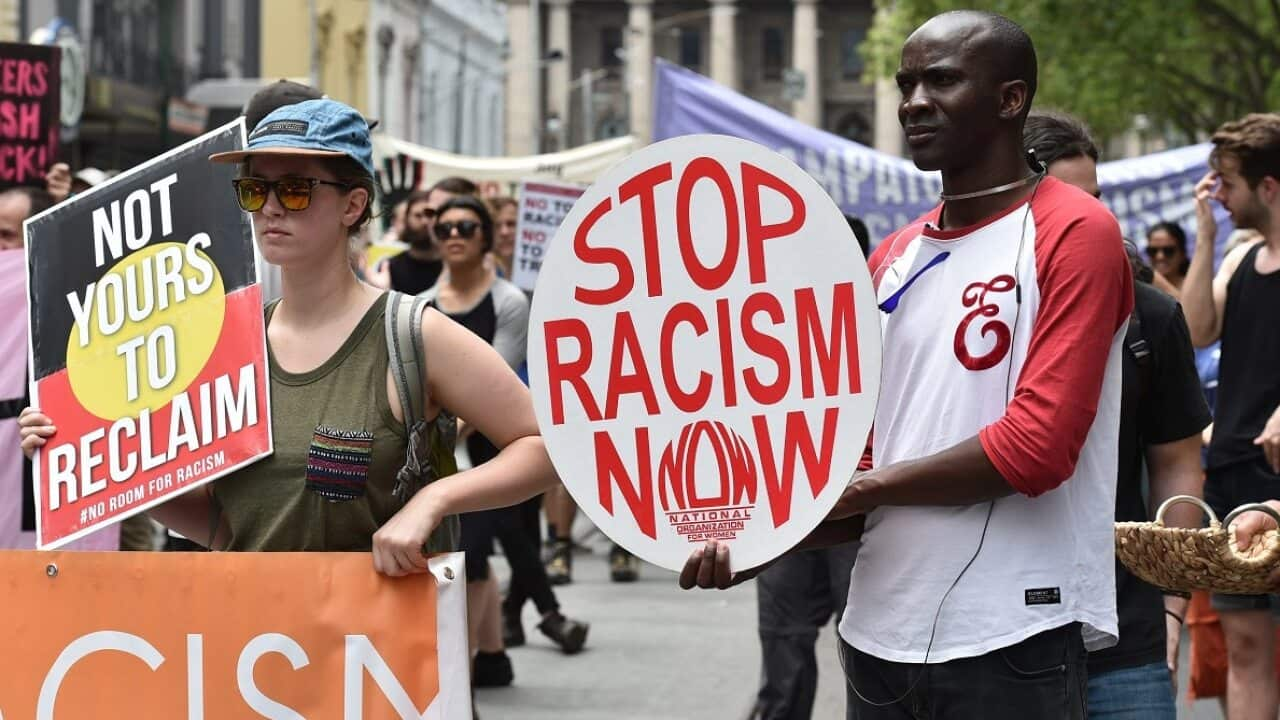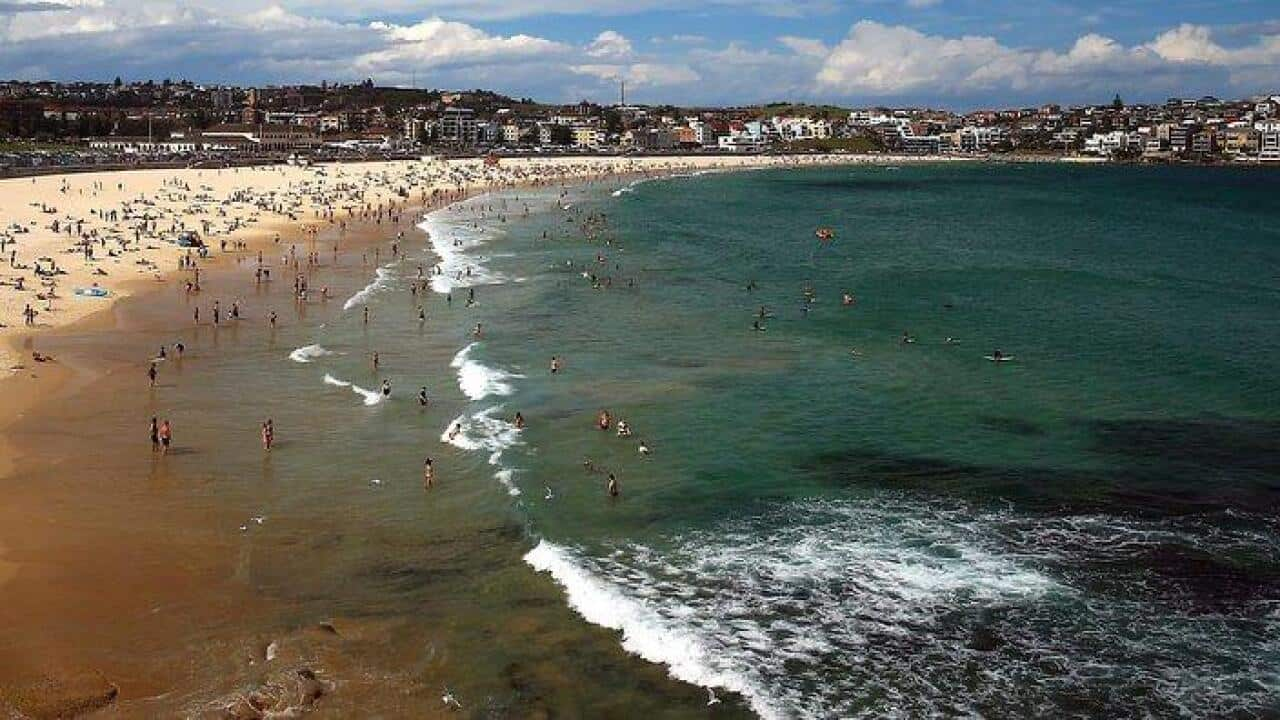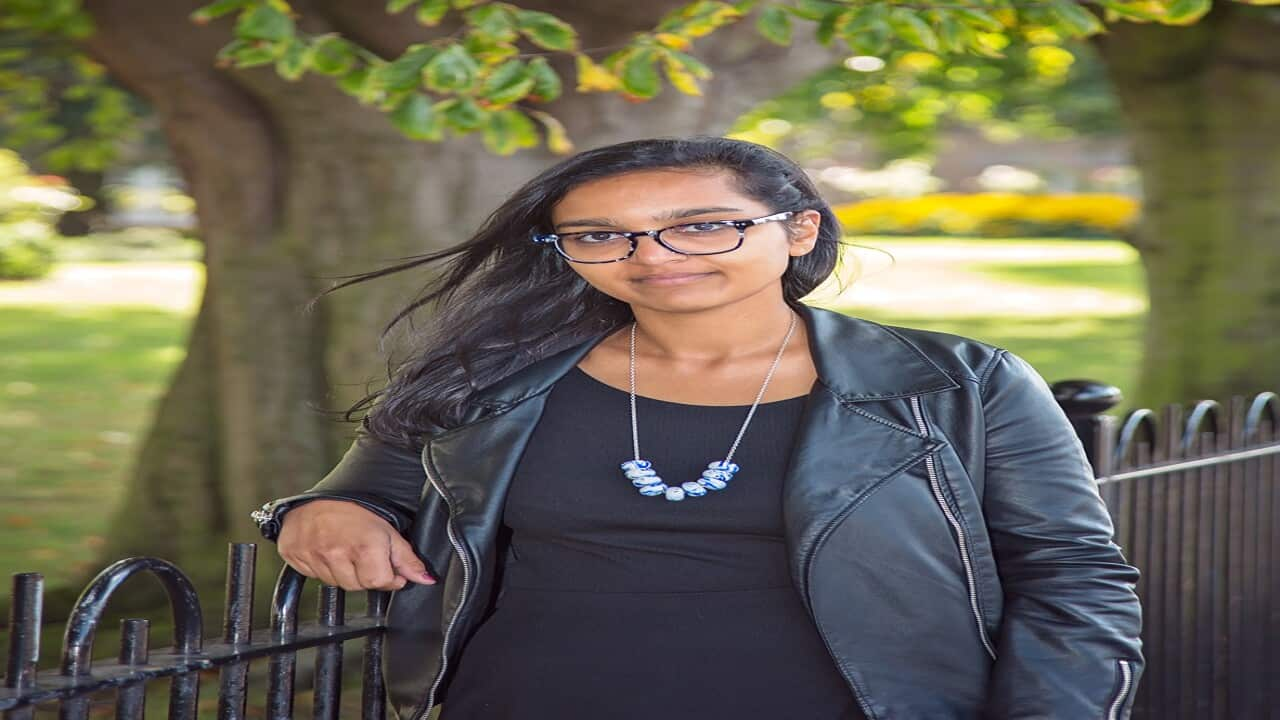Noodles. I need noodles in my life. Not the kind we get in a bowl of aromatic steaming broth in the high street canteens we all love, or the kind we find dried in packets in our corner shops.
I need noodles the way people get them in white cardboard boxes in the movies and on television. I watched gangsters make decisions with Chinese food in The Godfather and yearned for a Sex in the City style girly catch up with Chinese take away. I always knew that with a large order of noodles and sweet and sour prawns, came friends piling in through the front door. There would be chatter, the frenetic sharing of information and food, the clacking of chopsticks and the glamour of a city lifestyle.
I always knew that with a large order of noodles and sweet and sour prawns, came friends piling in through the front door. There would be chatter, the frenetic sharing of information and food, the clacking of chopsticks and the glamour of a city lifestyle.

A scene from Frankie and Grace. Source: Netflix
From very early on I knew if I grew up to order noodles in a cardboard box like the fabulous women in the movies, my social life would be that much better. There would be interesting conversation, witty debate, and lots of playful teasing among friends.
Had my parents not seen the films? I fumed. We were meant to eat sandwiches at the beach! We were meant to have cheese and pickle in white bread.
The food of my British Bengali childhood couldn’t be more different from what white people ate in movies. It involved masala chicken wrapped in parathas on day trips to the beach and chai in an industrial size thermos.
Had my parents not seen the films? I fumed. We were meant to eat sandwiches at the beach! We were meant to have cheese and pickle in white bread. In my fantasy, there would be frolicking in the water as my Ammi would wave sitting glamorously in sunglasses and bathing suit, no purdah required.
Instead her figure would be wrapped in her shawl and she would be in her sari shivering. My sister and I would be wishing no one had spotted us in our shalwar kameez among the sand dunes, desperately wanting to appear nonchalant, and unfazed by our differences.
A series of badgering sessions later, my Ammi decided she would at least address my sandwich plea.
When I was eight-years-old I remember excitedly opened my lunchbox on a school trip only to find slices of white bread fused together with grilled paneer and Ahmed's mango pickle. The kids around me shifted away giggling, and I wondered what it was we had got wrong. Surely having sandwiches like other English kids, would make me have straighter glossier hair, glowing lighter skin, and unbelievably popular?
My childhood is littered with moments when I realised food was the opening to a life like everyone else.
If only my parents would agree to going to the welcoming beautifully lit carvery in the adverts. The English carvery was a restaurant where families laughed and chatted around heaving tables of roast meat and roast potatoes. Everyone seemed so happy, so encouraging, so white! All looking exactly how we are all meant to look if we want to be part of the exciting outside world.
My Abbi refused to engage in such nonsense. Dad insisted you could cook wholesome meals at home. He would say, ‘Why would you pay to eat food that has had all the life and flavour taken out of it?’
We had roast chicken at home, but desi style. It was rubbed in turmeric, coriander and cumin. The potatoes were fried with onions and pungent with mustard seeds.
Somehow I knew the food we ate related to who we were. It was related to the physical abuse some members of my family endured on first moving to the UK that led to hospitalisation, and why the importance of prayer and morality was impressed upon us every day.
If only we went to a carvery or a pizza place - I believed, I knew - my family would lighten up. We would begin to belong, stop being the other.
Another lesson from the movies – to be a professional woman in the city with a dating life from the rom-coms, you need ice cream.
Early on, I knew it was vital to stock my freezer full of a variety of ice cream sensations. This was a prerequisite to provide comfort for the moments of heartbreak as I would sit in my pyjamas nursing my gaping wounds. I would have my own apartment, and pristine pyjamas, and there would not be a shalwar kameez in sight. Ice cream would guide me through my transition into independent western living.
Another lesson from the movies – to be a professional woman in the city with a dating life from the rom-coms, you need ice cream.
The insistence we had in my family, of all sitting to have our breakfast was misguided I believed. We should not be seated at the table eating kichuri or fried rice.
I knew in the world outside, like the people in the movies, everyone dashed to school or important meetings after pouring cereal they never ate. With a slice of toast in their mouths, teeth clamping down on it as they grunted goodbye, running out of the door for the bus.
We obviously were not important or busy enough in our lives. I would be though, when I grew up. I had watched closely through each movie and advertisement. I knew I had the tricks, all ready to be like all those beautiful interesting otherworldly people on TV.
As an independent 40-year-old woman, with my own home and my own path in UK life, I often think of those moments drinking chai at the beach, recently finding myself with a flask of it on a remote beach in Anglesey. My picnics would not be complete without samosas, and a spicy flavour-filled version of a western dish.
In moments of heartbreak and despair I yearn for my mother’s recipes despite the freezer being stocked with ice cream. I do not consider my heart healed without a home-cooked meal from my childhood, the layers of spices lacing my thoughts and caressing my ailments away.
In childhood the eating styles of people in movies was seen as my escape to freedom, independence and growth. As an adult, the food and way the family shared it, is a vital strand to the entirety of who I am.
Tashmia Owen is a freelance writer, filmmaker and artist based in London.




